Americans, thanks to our government’s ‘preventive wars’ and foreign policies, have been seen masquerading as Canadians when traveling abroad, wearing toques and T-shirts with maple leafs and muttering ‘eh’ at the end of sentences.
As the ladies of my literary group could tell you, a plaid shirt (more Alaskan than Canadian) and an occasional ‘eh’ is not sufficient. To help Americans abroad pass, I hereby provide this helpful Canadian-American dictionary.
| Leigh’s Canadian-American Dictionary |
| Canadian |
|
American |
 beaver beaver |
|
 beaver (sort of) beaver (sort of) |
- While other nations were founded for the search of gold or religious freedom, Canada was explored and settled in a search for, well, beaver. As far as I can tell, based upon conversations in several bars, this search continues today. "Sometimes a beaver is just a beaver," said Sigmund Freud.
|
 chesterfield chesterfield |
|
 davenport davenport |
- Okay, they’re both sofas or couches. A chesterfield is an old-fashioned term found in Ontario, while a davenport is an old-fashioned American term found in my mother’s house.
|
 Craven Craven |
|
 cancer in a cigarette delivery package cancer in a cigarette delivery package |
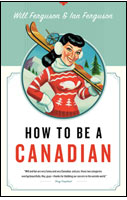 I’ve always wanted to call tobacco companies cowardly bastards I’ve always wanted to call tobacco companies cowardly bastards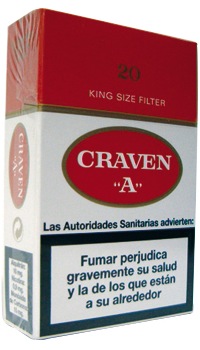 , but one Canadian brand took it upon themselves. However, in their book How To Be a Canadian, the wickedly funny Ferguson brothers suggest the name is subliminal for "cravin’". , but one Canadian brand took it upon themselves. However, in their book How To Be a Canadian, the wickedly funny Ferguson brothers suggest the name is subliminal for "cravin’".
|
 daylight daylight |
|
 lunch hour lunch hour |
|
|
 donut donut |
|
 doughnut doughnut |
- The spellings are interchangeable, but it’s the intonation of almost religious awe that sets Canadians apart.
|
 eh eh |
|
 huh huh |
- This has sometimes been called a verbal tic, etymologically related to the verminous tick.
|
 Florida Florida |
|
 Florida Florida |
- The 11th province, sometimes referred to as the Southeast Territories.
|
 four-ways four-ways |
|
 hazard blinkers hazard blinkers |
- I’m sorry, but warning signals isn’t the first thing I think of when someone says "4-way". Maybe it’s just me, but when confronted with this term, I flashed back to college with Bubbles McGuire and a couple of her sorority sisters… How was I to know the officer meant hazard warning lights?
|
 health care health care |
|
 ? ? |
- There’s no direct equivalent for millions of Americans.
|
 hydro hydro |
|
 electricity electricity |
- This confusing term is what Canadians use when they mean electricity, even if they don’t get electric out of the tap. Canadians have convinced me that there’s no water wheel immediately outside the building, but there is one off yonder. Despite what foreigners may suspect, this is not said with a sing-song "nah-nah-na-na-nahh-nah, we’ve got hydroelectric while others fool with coal and nookyulur."
|
 Javex Javex |
|
 Clorox Clorox |
- Bleach by any other name, but ask for ‘bleach’ and you may get a raised eyebrow.
|
 mall mall |
|
 mall, theme park, casino, church mall, theme park, casino, church |
- In the far north, the Canadians no longer live in igloos and log cabins, they live in malls.
|
 mapley mapley |
|
 umami umami |
- Canadian researchers discovered the tongue has 5 types of taste buds capable of tasting salt, sour, bitter, sweet, and mapley. Surprisingly, this term is not limited to syrups and sugars, but Canadians can be heard discussing how bacon, hams, and forest fires are mapley. "Mmm, smell that fire, Burt. Them moose are going to be real mapley this season."
|
 Red River Red River |
|
 hot cereal hot cereal |
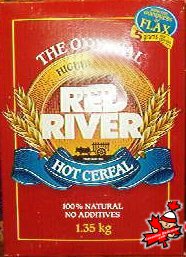 A ‘multi-grain’ breakfast, um, food, assuming grains includes trees. Like most cereals, it closely resembles sawdust from the great forests of the Northwest Territories. I suspect this distinctly Canadian product was invented when a boss suggested employees develop a maple cereal. Unfortunately, the employees thought he meant "maple tree cereal" instead of "maple-flavoured cereal." . Okay, I confess I don’t like any cereal, so I’m not a fair judge, but consider this syllogistic proof: A ‘multi-grain’ breakfast, um, food, assuming grains includes trees. Like most cereals, it closely resembles sawdust from the great forests of the Northwest Territories. I suspect this distinctly Canadian product was invented when a boss suggested employees develop a maple cereal. Unfortunately, the employees thought he meant "maple tree cereal" instead of "maple-flavoured cereal." . Okay, I confess I don’t like any cereal, so I’m not a fair judge, but consider this syllogistic proof:
|
 parkade parkade |
|
 parking garage parking garage |
- A clever portmanteau word comprised of ‘parking arcade’. I like it.
|
 poutine poutine |
|
 french fries + french fries + |
- Ever since the French invented fries, scientists have sought to fortify pommes frites with cholesterol. Pittsburgh invented cheese fries, Cincinnati came up with chili fries, and McDonalds tried frying them in lard. Not to be outdone, Quebec put their best minds to work, coming up with poutine, an onion gravy topping served with additional cheese curds. Heart-stopping goodness in every bite.
|
 serviette serviette |
|
 napkin napkin |
- Very French. A friend delicately suggested she uses the term to avoid confusion with a feminine product. That’s admirable, because I’d hate to see Canadian waiters make an embarrassing blunder at the dining table.
|
 side-by-each side-by-each |
|
 side-by-side side-by-side |
|
|
 Sutters Sutters |
|
 ? ? |
 Americans typically awaken to this name when asked, "You don’t know who the Sutters are?" Trying to think of early explorers, current politicians, and authors, I ventured to enquire if the Sutters were the crew who Americans typically awaken to this name when asked, "You don’t know who the Sutters are?" Trying to think of early explorers, current politicians, and authors, I ventured to enquire if the Sutters were the crew who  cannibalized one another when snowbound in the mountains. My friend’s horrified expression suggested I was gravely mistaken. Eventually, cannibalized one another when snowbound in the mountains. My friend’s horrified expression suggested I was gravely mistaken. Eventually, I gathered Sutters have something to do with hockey, another national religion. When I defensively protested I was from sunny Florida where the only ice was in tea and politicians’ hearts, they said, "Florida has the Tampa Bay Lightning and Florida Panthers!" We do? Who knew? Anyway, I said Florida was the 11th province. I gathered Sutters have something to do with hockey, another national religion. When I defensively protested I was from sunny Florida where the only ice was in tea and politicians’ hearts, they said, "Florida has the Tampa Bay Lightning and Florida Panthers!" We do? Who knew? Anyway, I said Florida was the 11th province.
|
 stuffies stuffies |
|
 plush plush |
- Stuffed animals. Not related to ‘puffies’, my first though when a friend asked if I wanted to cuddle her stuffies.
|
 these ones (those ones) these ones (those ones) |
|
 these (those) these (those) |
- I believe I have identified a linguistic phrase unique to Canadians and small children. In the mall, they’ll point and say, "I’ll have these ones," instead of ‘these’ or ‘these three’. I’m applying to the Nobel Foundation for a grant to study this phenomenon, just as soon as I get "this ‘un" and "them there" out of my vocabulary.
|
 toque toque |
|
 knit hat or ski cap knit hat or ski cap |
- Hats that make girls look cute and guys look silly. Note that toque is pronounced to rhyme with ‘duke’.
|
 toque-hair toque-hair |
|
 bed head bed head |
- See ‘toque’ above. As a matter of courtesy, no one looks at another’s coiffure during the 50 weeks of winter from August through June. Most Canadians are in Florida at that time anyway.
|
 UGG UGG |
|
 ugh / ugly ugh / ugly |
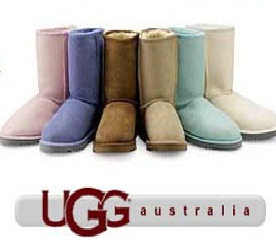 An exhibit of a WW-I aviator’s outfit in the Canadian War Museum cites the term fug boots, which pretty well sums up male opinions of this female fashion. Canadians want it known they are not to be blamed for this New Zealand atrocity, UGGs, the inch-thick socks that made a 1970s ‘fashion’ statement. The abomination was named, however, by Canadian Mr. Edgar J. Ostmeyer when his wife returned from a shopping trip. He said, "Damn, those are ugl…" whereupon he wisely didn’t finish the sentence. The name stuck. So has the accursed fashion. An exhibit of a WW-I aviator’s outfit in the Canadian War Museum cites the term fug boots, which pretty well sums up male opinions of this female fashion. Canadians want it known they are not to be blamed for this New Zealand atrocity, UGGs, the inch-thick socks that made a 1970s ‘fashion’ statement. The abomination was named, however, by Canadian Mr. Edgar J. Ostmeyer when his wife returned from a shopping trip. He said, "Damn, those are ugl…" whereupon he wisely didn’t finish the sentence. The name stuck. So has the accursed fashion.
|
 warm warm |
|
 -14° Celsius -14° Celsius |
- An indication in degrees centigrade of how likely visitors are to freeze to death. Winter temperatures are measured in degrees Celsius. However, during the 14 days of summer, known as "the Tourist Season" and "National Construction Festival", temperature is measured in degrees Fahrenheit. This is because 37°C doesn’t sound impressive to tourists, whereas 99°F makes visitors realize Canadians can suffer in summer as well as winter.
|
 zed zed |
|
 z z |
- Most of the world pronounces the letter Z as ‘zed’. I still like our ‘zee’ sound. Zed sounds so final.
|
Nobody knows how any given word is spelled. A word might use English spelling, American spelling, French, Farsi, Australian, or uniquely Canadian. Just guess, ’cause nobody’s sure.
To the embarrassment of Florida whose politicians insists more studies are needed to prove rapid transit works (although for decades Disney World has a working monorail with a nearly perfect operational record), Edmonton sports a commuter subway, called the LRT, which around midnight stands for Luckily Running Train. Although the commuter line is simple compared to New York, Paris, or London, the official map is meaningless to outsiders. For the convenience of visitors, I’m providing this handy guide:
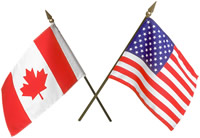 As mentioned before, I’ve been discovering more Canadian writers, thanks to friends north of the border and to Liz Ruch’s literary group in Winter Park. These (mostly) Southern ladies who meet monthly at the Morse Museum, feel a bond of the heart with Canadian writers, even if we below the Mason-Dixon line pronounce maple and mountie each with three syllables.
As mentioned before, I’ve been discovering more Canadian writers, thanks to friends north of the border and to Liz Ruch’s literary group in Winter Park. These (mostly) Southern ladies who meet monthly at the Morse Museum, feel a bond of the heart with Canadian writers, even if we below the Mason-Dixon line pronounce maple and mountie each with three syllables.


























The French did not invent French fries. The Belgians did. Only Germans call them pommes frites. To native speakers of Frog, they are simply frites.
Chili fries are from Cincinnati? I always thought they were invented at Pink’s, the legendary L.A. hot dog stand.
In Britspeak, “napkin” means “diaper”.
One way to immediately spot a Canadian is by the label on the beer he’s drinking.
I live an hour from O Canada, so this brought back lots of memories for me. You forgot “about” which means the same thing in both countries but in Canada ia pronounced “aboot.” Now that I think of it, I had a story in Michae; Bracken’s book HARDBOILED that mentioned that word and turned on dialect variations.
There is a Canadian band called the Arrogant Worms and one of the many national anthems they have written is called “We Are The Beaver.” An excerpt:
You might think a rodent is a pretty lame choice
For a national animal, but don’t you listen to that voice.
No, cause all them birds and preditors, just take from the land
But the beaver, always gives a dam.
We are the beaver, we got cute little webbed feet
Yeah, we are the beaver, it’s bark we like to eat
Yeah, we are the beaver, a nickel we complete.
Yeah, we are the beaver, we are the beaver, we are the beaver.
Without Canada and Mexico, Budweiser drinkers would forget what real beer tastes like.
Got to love the shopping!
Americans typically awaken to this name when asked, “You don’t know who the Suttons are?”
I thought that everybody knew that the “Suttons” refers to the Sutton Coldfield Hockey Club in England, first founded in the late 19th century as a Ladies Indoor League Team.
No?
… a plaid shirt (more Alaskan than Canadian) …
Actually, more Seattle grunge than Alaskan frontiersman.
(From a guy whose paternal grandfather was a Cunuck, and who has spent a lot of time in Alaska, after all.)
The inimitable Will Ferguson, co-author of How to be a Canadian, kindly took the time to send the following note:
Your message was forwarded to me, along with a link to your Can-Am dictionary, which I enjoyed immensely. It’s very funny. (Note: Americans say we pronounce about as “a boot” but if you listen carefully you’ll notice we actually say “a boat.” As in, “How far to Winnipeg? A boat an hour.”
I certainly couldn’t let Will be the only Ferguson brother to compliment you on your Can-Am dictionary, and I also wanted to point out that when the first leg of the Edmonton LRT opened the route consisted of only four, count ’em, four stops – Jasper, City Centre, Stadium and Coliseum. The U of A stations and the Middle of Nowhere weren’t added for years and years.
Cheers, Ian Ferguson.